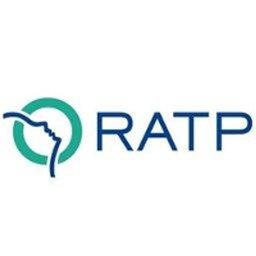FIND_THE_RIGHTJOB.
Sr Risk Analyst
Egypt
Sr Risk Analyst
- Fixed-term contract
- Full-time
- At least 5 years of experience (Senior level)
- Bachelor degree
- Strategy Analyst
Mission
JOB PURPOSE:
To lead the development, implementation, and continuous improvement of a robust enterprise risk management framework that enables the organization to identify, monitor, and mitigate operational, strategic, and organizational risks. The Senior Risk Analyst plays a key role in fostering a proactive risk culture, advising leadership on emerging risks, and ensuring alignment with international standards, regulatory requirements, and corporate objectives.
Profile
RESPONSIBILITIES/DUTIES
Risk Management Framework & Governance
- Lead the implementation and enhancement of the organization’s Risk Management System in alignment with ISO 31000 and industry best practices.
- Review, update, and recommend improvements to risk management policies, frameworks, and procedures.
- Oversee the corporate risk register, ensuring accuracy, relevance, and timely updates across all departments.
- Provide expert guidance to departments and management on risk governance, control measures, and compliance.
Risk Assessment & Analysis
- Conduct advanced qualitative and quantitative risk assessments, leveraging tools such as risk matrices, scenario analysis, and statistical models.
- Monitor and evaluate emerging risks, market trends, and regulatory developments impacting the organization.
- Develop and recommend effective risk mitigation and contingency strategies, ensuring alignment with strategic objectives.
- Provide independent challenges and validation of departmental risk assessments and control effectiveness.
Risk Reporting & Communication
- Prepare and deliver high-quality risk reports, dashboards, and executive-level presentations for senior management, Board committees, and external stakeholders.
- Monitor and track delivery of the Annual Risk Plan, ensuring clear performance indicators and accountability.
- Ensure transparent documentation and timely escalation of significant risks and incidents.
Operational & Cross-Functional Risk Oversight
- Partner with operational, technical, and corporate functions to identify, document, and mitigate operational risks.
- Lead cross-departmental risk workshops, facilitating discussions to enhance collective risk awareness and ownership.
- Support internal and external audits by providing risk analysis, documentation, and evidence of effective controls.
Change Control & Incident Management
- Provide oversight into organizational change initiatives to assess risk impacts and recommend mitigation strategies.
- Lead reviews of major incidents, conducting root cause analysis, and ensuring implementation of corrective and preventive actions.
- Track lessons learned and integrated into risk frameworks and awareness programs.
Culture, Awareness & Training
- Championing a risk-aware culture across the organization by leading awareness campaigns and training programs.
- Act as a subject matter expert, mentoring junior analysts and department coordinators in risk management practices.
- Drive integration of risk management with safety, compliance, and corporate governance frameworks.
General Duties
- Support regulatory compliance requirements and contribute to risk-related audits and inspections.
- Represent the organization in external risk forums, benchmarking groups, or industry associations as required.
- Undertake additional tasks or projects assigned by management to advance enterprise risk maturity.
ESSENTIAL QUALIFICATIONS, KNOWLEDGE & EXPERIENCE
QUALIFICATIONS:
- Bachelor’s degree in engineering, Business, Risk Management, or related field.
- Professional certifications in Risk Management
- Fluency in Arabic and English required; French is an advantage.
KNOWLEDGE:
- Deep understanding of enterprise risk management frameworks and tools.
- Strong expertise in risk quantification, incident investigation, and root cause analysis.
- Knowledge of safety, compliance, change control, and internal audit methodologies.
- Proficiency in risk management software and advanced data analysis tools (Power BI, Qlik, or equivalent).
EXPERIENCE:
- 5–7 years of experience in risk management, safety, compliance, or operational analysis, with increasing responsibility.
- Demonstrated experience in managing corporate risk registers, facilitating workshops, and delivering risk reports to senior stakeholders.
- Exposure to infrastructure, transport, energy, or industrial sectors preferred.
- Proven ability to analyze complex datasets, develop insights, and influence decision-making at senior levels.
DESIRED BEHAVIORS & EXPERIENCES
- Strategic Thinking: Understands the link between risk and organizational strategy; anticipates long-term impacts.
- Analytical Rigor: Applies advanced analytical techniques and critical thinking to evaluate risks and recommend actions.
- Leadership & Influence: Guides cross-functional teams and influences senior stakeholders in risk-based decision-making.
- Communication: Excellent report writing, presentation, and facilitation skills.
- Collaboration: Builds strong partnerships across the organization and drives alignment on risk priorities.
- Proactivity & Ownership: Takes initiative to identify risks early and ensures timely resolution of risk issues.
- Integrity & Accountability: Maintains confidentiality, ethical conduct, and ownership of deliverables.
- Adaptability: Demonstrates resilience and agility in fast-changing environments.
Location
Cairo, Cairo, Egypt
Similar jobs
محلل ائتمان شركات – Corporate Credit Analyst
شركة العلياء لالحاق العماله المصرية بالخارج
Egypt
5 days ago
Senior Financial Analyst ( USD Salary )
FlapKap
Cairo, Egypt
5 days ago
Senior Cyber Security Analyst
Vultara Inc.
Egypt
5 days ago
Senior Consultant/Manager
Deloitte
Giza, Egypt
5 days ago
Operations Analyst - req34519
IFC - International Finance Corporation
Cairo, Egypt
5 days ago
Operations Analyst
World Bank
Egypt
5 days ago
EY Parthenon Strategy Manager / Senior Manager (Gen AI) - Egypt
EY-Parthenon
Cairo, Egypt
5 days ago
© 2025 Qureos. All rights reserved.
